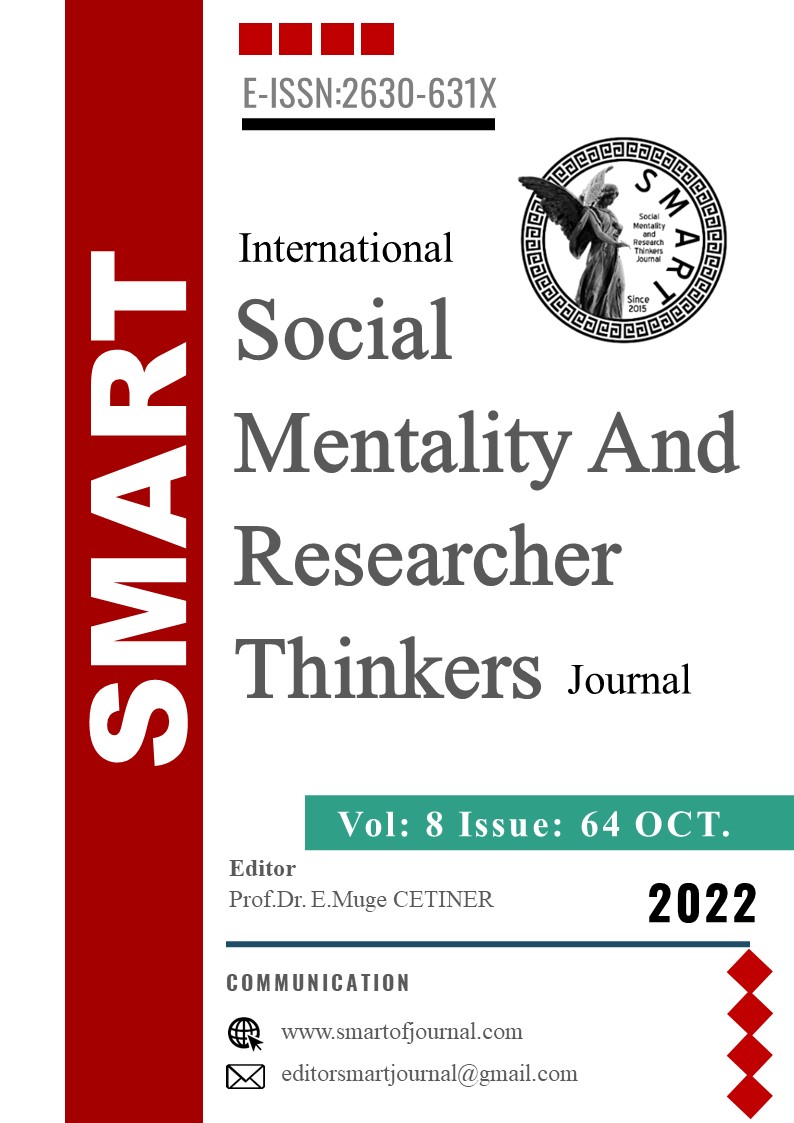Author :
Abstract
Yönetim biliminde en çok tartışılan konuların başında kamu yönetimi disiplini alanında yapılan çalışmalar ve uygulamalardır. Kamudaki politikalarının belirlenmesi ve uygulama süreçlerinde yaşanan sorunlar akademik literatürde önemli inceleme konusu olmuştur. Kamu yönetimi genel anlamda kamuda izlenecek süreçlerin planlanması, örgütlenmesi, uygulanması, denetlenmesi ve kamu kurumunun sevk ve idare edilmesini kapsayan uzun vadeli bir sistemdir. Kamu kurumlarındaki bürokratik işlemlerin uygulama zorluğu ve işleyiş düzeninin belirli kurallara bağlı olması bu kurumları özel sektörden ayıran en önemli faktörlerdendir. Kamu kurumlarındaki yönetim zorluğu nedeniyle örgüt ikliminde ve çalışanların iş motivasyonunda olumsuz etkiler meydana gelmektedir. Son yıllardaki yapılan çalışmalarda etnik köken sorunları ve kültürel yapının gelişiminde etkili bir liderlik anlayışı olan kamuda kapsayıcı liderliğin önemine dikkat çekmektedir. Bu noktada bu makalede disiplin ve sınırlayıcılık özelliği ile bilinen kamu kurumlarında kapsayıcı liderlik konusu ele alınarak gelecek çalışmalara katkı sağlanması düşünülmüştür.
Keywords
Abstract
One of the most discussed topics in management science in he studies and practices in the field of public administration. The determination of public policies and the problems experienced in the implementation processes have been the subject of important examination in the academic litarature. In general, public administration is a long term system that covers the planning, organization, implementation, supervision of the processes to be followed in the public sector and the management and administration of the public institution. The difficulty of implementing bureaucratic procedures in public institutions and the fact their functioning is subject to certain rules are the most important factors that distinguish these institutions from the private sector. Due to the management difficulties in public instittutions, negative effects occur on the organizational climate and the work motivation of the employees. Studies conducted in recent years draw attention to the importance of inclusive leadership in the public, which is an effective leadership understanding in the development of ethnic origin problems and cultural structure. At this point, in this article, it is thought to contribute to future studies by discussing the issue of inclusive leadership in public institutions, which are known their discipline and limiting feature.
Keywords
- 1. Ashikali, T., Groeneveld, S. ve Kuipers, B. (2021). The Role of Inclusive Leadership In Supporting An Inclusive Climate In Diverse Public Sector Teams, Review of Public Personnel Administration 41(3), 497-519. Journals.sagepub.com.
- 2. Ashikali, T. (2021). Inclusive Leadership In The Public Sector, universiteitleiden news.
- 3. Baş, M. (2022). Kamu Çalışanlarının Kapsayıcı Liderlik Algısı Üzerine Bir Araştırma, Gümüşhane Üniversitesi Sosyal Bilimler Dergisi, 13(1), 343-354.
- 4. Hameduddin T. ve Engbers, Trent. (2022). Leadership And Public Service Motivation: A Systematic Synthesis, International Public Management Journal, 25(1), 86-119. doi.org/10.1080/10967494.2021.1884150
- 5. Hussainy, S. S. (2022). Organizational Climate: From Literature Review To Agenda Ahead, International Journal of Engineering Technologies And Management Research, 9(1), 44-62.
- 6. Holloway, B. J. (2012). Leadership Behavior And Organizational Climate : An Emprical Study In A Non Profit Organization, Emerging Leadership Journeys, 5(1), 9-35.
- 7. Ingraham, W. P. ve Taylor, G. H. (2004). Leadership In The Public Sector: Review of Public Personnel Administration, 24(2), 95-112.
- 8. Novac, C. ve Bratanov, L. C. (2014). The Impact of The Leadership Style on The Organizational Climate In A Public Entity, Management Dynamics In The Knowledge Economy, 2(1), 155-179.
- 9. OECD. (2019). OECD Recommendation On Public Service Leadership And Capabilitiy, Erişim Tarihi: 15.07.2022. https://www.oecd.org/gov/pem/recommendation-on-public-service-leadership-andcapability.htm?_ga=2.21946876.650457115.1661414061-489216617.1661414061.
- 10. Orazi, C. D., Turrini, A. ve Valotti, G. (2013). Public Sector Leadership: New Perspectives For Research And Practice, International Review of Administrative Sciences, 79(3), 486-504. doi.org/10.1177/0020852313489945.
- 11. Potipiroon W. ve Wongpreedee. (2020). Ethical Climate And Whistleblowing Intentions: Testing The Mediating Roles of Public Service Motivation And Psychological Safety Among Local Government Employees, Public Personnel Management, 1-29, doi: 10.1177/0091026020944547.
- 12. Sürücü, L. ve Maslakçı, A. (2021). Kapsayıcı Liderlik Ölçeğinin Türkçe’ye Uyarlanması: Geçerlilik ve Güvenilirlik Çalışması, Doğuş Üniversitesi Dergisi, 22(2), 201-215.
- 13. Vallejo, P. C. ve Munoz, F. J. J. (2020). Quality of Leadership And Organizational Climate In A Sample of Spanish Workers. The Moderation And Mediation Effect of Recognition And Teamwork, Int J Environ Res Public Health, 17(1):32. doi: 10.3390/ijerph17010032.





